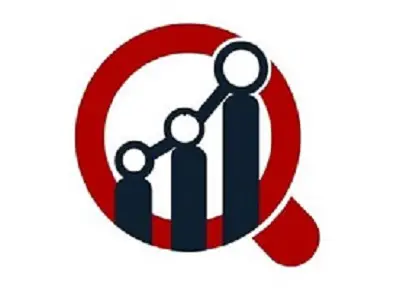Blockchain in pharmaceutical supply chain management market industry is projected to grow from USD 0.98 Billion in 2023 to USD 5.15 Billion by 2032, showing a compound annual growth rate of 23.0% from 2023 to 2032.
The blockchain in pharmaceutical supply chain management market continues to witness robust growth driven by the pressing need for transparency, security, and efficiency in drug distribution. Blockchain technology offers immutable ledgers, ensuring tamper-proof records of transactions and product movements, bolstering trust among stakeholders. Enhanced traceability enables rapid identification and mitigation of counterfeit drugs, reducing risks to patient safety. Moreover, regulatory mandates for serialization and track-and-trace solutions further propel market expansion. Collaborations between pharmaceutical giants and blockchain developers foster innovation in supply chain integrity. With increasing adoption, blockchain emerges as a cornerstone technology reshaping the pharmaceutical supply chain landscape, promising enhanced accountability and streamlined operations.
In the realm of pharmaceutical supply chain management, Blockchain integration has emerged as a transformative solution, revolutionizing the way pharmaceutical logistics are handled. Blockchain technology offers unparalleled transparency, security, and traceability throughout the entire supply chain, addressing critical issues such as counterfeit drugs, theft, and inefficiencies.
By implementing Blockchain integration, pharmaceutical companies can establish an immutable ledger of transactions, securely recording every step of the supply chain process from manufacturing to distribution. Each transaction, including production, packaging, transportation, and delivery, is cryptographically linked, ensuring data integrity and authenticity.
The utilization of Blockchain in pharmaceutical logistics enhances visibility and accountability, enabling stakeholders to track and verify the authenticity of drugs in real-time. This level of transparency not only minimizes the risk of counterfeit products entering the supply chain but also expedites the identification and recall of potentially harmful drugs.
Furthermore, Blockchain technology streamlines regulatory compliance by providing auditable records and documentation of each transaction, simplifying the verification process for regulatory authorities.
As the pharmaceutical industry continues to prioritize patient safety and regulatory compliance, the adoption of Blockchain integration in supply chain management is poised to become increasingly prevalent. Companies that embrace this innovative technology will not only safeguard their reputation but also ensure the integrity and safety of the products they deliver to consumers.Top of Form
Segmentation
The global blockchain in pharmaceutical supply chain management market is segmented on the basis of application, end user, and region.
On the basis of application, the global blockchain in pharmaceutical supply chain management market is segmented into product traceability, risk and compliance management, payment & settlement, others. The market by end user is segmented into manufacturers, distributors, healthcare providers.
On the bases of region, the global blockchain in pharmaceutical supply chain management market is segmented into the Americas, Europe, Asia-Pacific, and the Middle East & Africa. The Americas is expected to hold the largest market share and the Middle East & Africa with a low market share during the forecasted period.
Key Players
The global blockchain in pharmaceutical supply chain management companies are IBM, Microsoft, SAP SE, Oracle, Tibco Software, Auxesis Group, Omnichain, Vechain Foundation, Chainvine, Applied Blockchain, AWS, Huawei, Guardtime, BTL Group, Bitfury, Digital Treasury Corporation, Blockverify, Nodalblock, Peer Ledger and others.
Regional Analysis
The healthcare sector and its supporting IT infrastructure are going through dramatic changes, all of which impact the claims management process and lead to improving the technology. Many healthcare organizations use robotic process automation, intelligent EDI integration, insurance discovery, and patient solutions all within their workflow platform to dramatically enhance the overall process. The adoption of various software has increased profits.
Infrastructure and technology are continuously evolving in developing regions such as Asia-Pacific. A number of different multinational and local companies are involved in developing their markets in this region owing to the developing economy and increasing government support. An increasing number of healthcare companies have provided a good opportunity for the development of the blockchain in pharmaceutical supply chain management market.
Furthermore, in the United States, the Drugs Quality and Safety Act (DQSA) was promoted by Congress on November 27, 2013. This outlines the steps to be taken to develop an interoperable electronic supply chain management system. This will strengthen the FDA's capability to protect consumers from exposure to drugs that could be fake or from the black market.
Related Reports:
Clinical Trial Management System Market
Alzheimers Disease Diagnostic Market
For More Information, Please Visit @ Market Research Future






